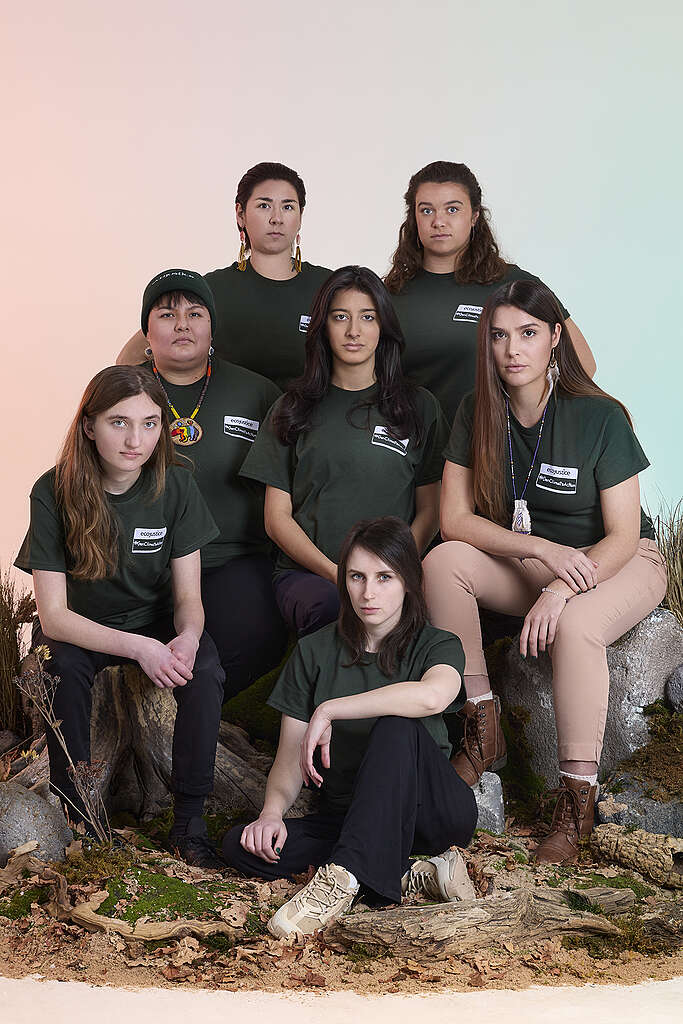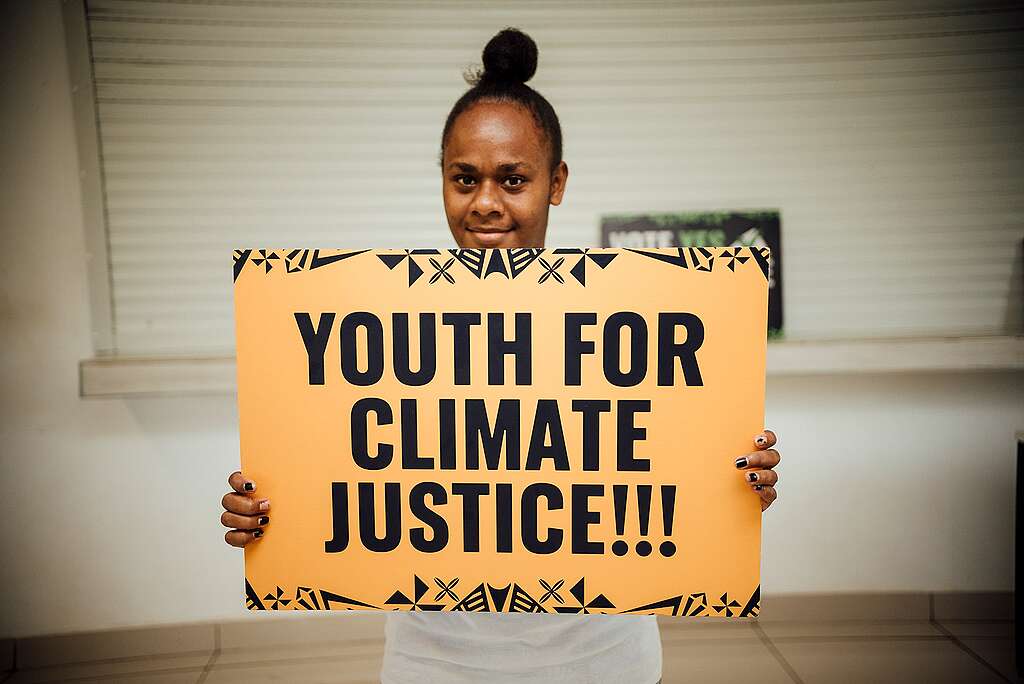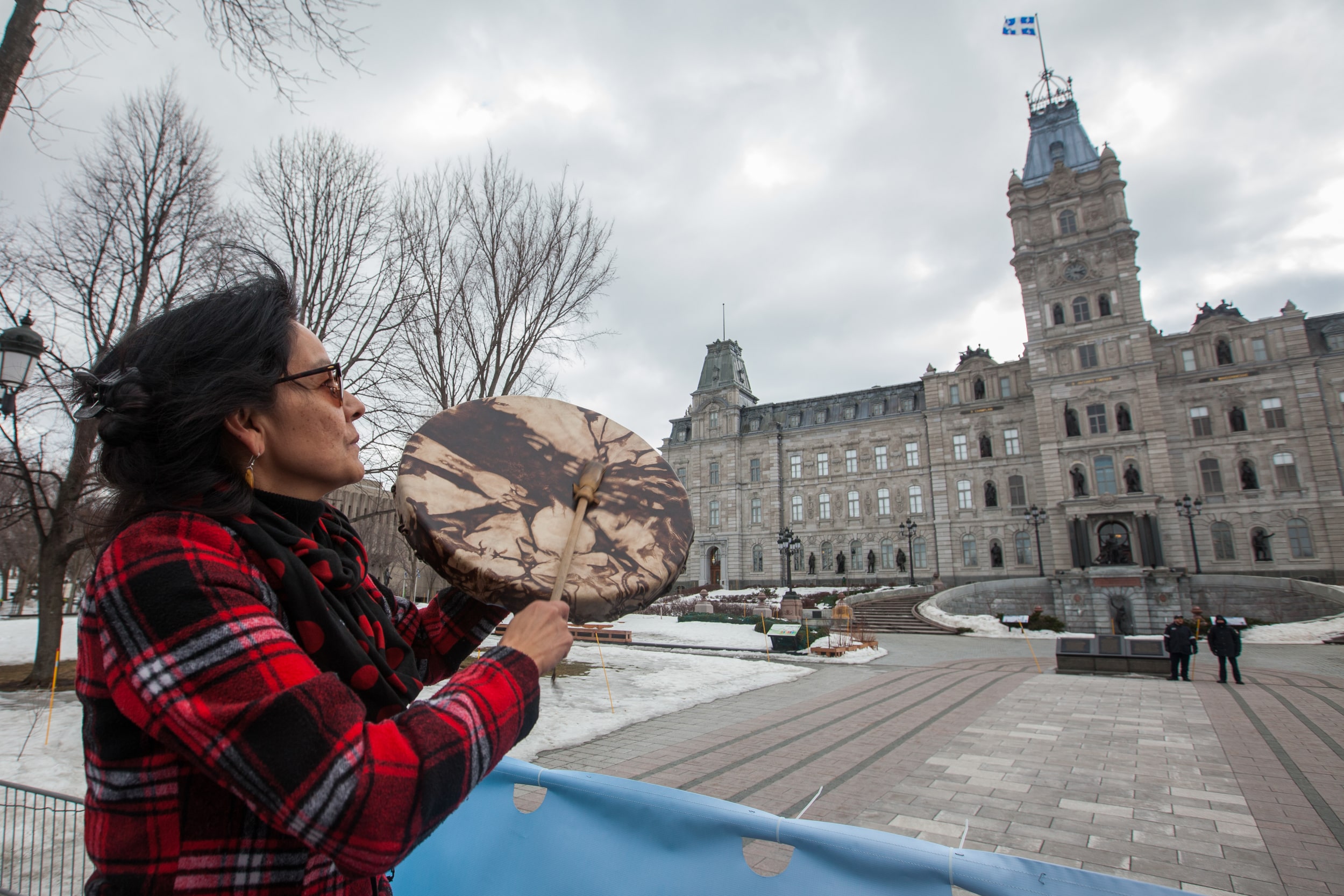Young people around the world want governments to do more about climate change. They’re taking their governments to court … and winning!
These cases are making headlines because they’re forcing governments to act. Judges have ordered governments in places like Hawaii, Germany, and South Korea to cut more of the greenhouse gas pollution that’s driving climate change.
Let’s look at two of the climate cases going on now. They may just change the future for Canada and the rest of the world.
The first climate lawsuit led by young people in Canada

The Ontario government changed its climate plans in 2018. It said it would only cut greenhouse gas pollution by 30% by 2030. Before that, it had promised to cut 37%.
It hadn’t counted on a challenge from seven young climate activists.
The climate activists, between the ages of 12 and 24, launched a lawsuit against Ontario’s government. They asked the court to order the government to cut more greenhouse gas pollution.
They argued that the government was violating their rights under the Canadian Charter of Rights and Freedoms. It was risking the life, liberty, and personal security of Ontario’s youth and future generations.
It was Canada’s first climate lawsuit led by young people.
A judge dismissed the case in 2023, but the activists didn’t give up. They took their case to the top court in Ontario, the Court of Appeal. The Court of Appeal sided with the activists in 2024 and said their lawsuit could go forward.
It was the first time in Canadian history that courts agreed climate change could violate Charter rights, making it easier for people to bring cases like this to court in the future.
Here’s how one of the activists, Shaelyn Wabegijig, explained why she’s taking the Ontario government to court:
“I’m part of this lawsuit for everyone, for future generations and for our non-human relatives. If I ever bring children into this world, I want to be able to share healthy air, land and water, a safe climate, and my culture. As a member of the Caribou Clan, my cultural identity is interconnected with Ontario’s boreal caribou, and it risks disappearing if this species is wiped out.”
You can meet the seven activists and learn why they’re taking Ontario’s government to court by reading #GenClimateAction.
Taking climate action to the world’s highest court

A group of law students were studying at the University of South Pacific in the country of Vanuatu in 2019. They all came from Pacific island nations. These nations are some of the most vulnerable in the world to the impacts of climate change. Droughts and cyclones there are getting worse. Rising seas could cover whole countries by the end of the century. Climate change is threatening the islanders’ lives, cultures, and identities.
That’s why the law students wanted the world’s highest court – the International Court of Justice (ICJ) – to issue an advisory opinion on the climate crisis. An advisory opinion doesn’t become law around the world. But it does become a guide for how countries make laws and how courts decide cases.
The law students grew their idea into a movement of young people around the world. Then, their idea became a reality.
The ICJ began hearings in the case in 2024. It was asked to give its opinion on an important question. What legal responsibility do nations have to protect people from climate change, now and in the future?
The judges heard the stories of people in communities affected by climate change. They also heard from over 100 countries and international organizations.
The president of the Pacific Islands Students Fighting Climate Change, Cynthia Houniuhi, spoke. She said her land was very close to being swallowed up by the rising seas:
“Without our land, our bodies and memories are severed from the fundamental relationships that define who we are. Those who stand to lose are the future generations.”
You can find her whole speech here.
The ICJ will give its opinion in 2025. It may change the way courts handle climate cases in the future. It may also encourage more people to take their governments to court for not protecting them from climate change.
The story won’t end there …
Young people know that their future is at risk. They will live in a less safe and healthy environment if nothing is done about climate change.
Of course, it shouldn’t take lawsuits to force governments to protect our future. But if they fail to act, there’s a growing movement of young people ready to hold them responsible in court.



